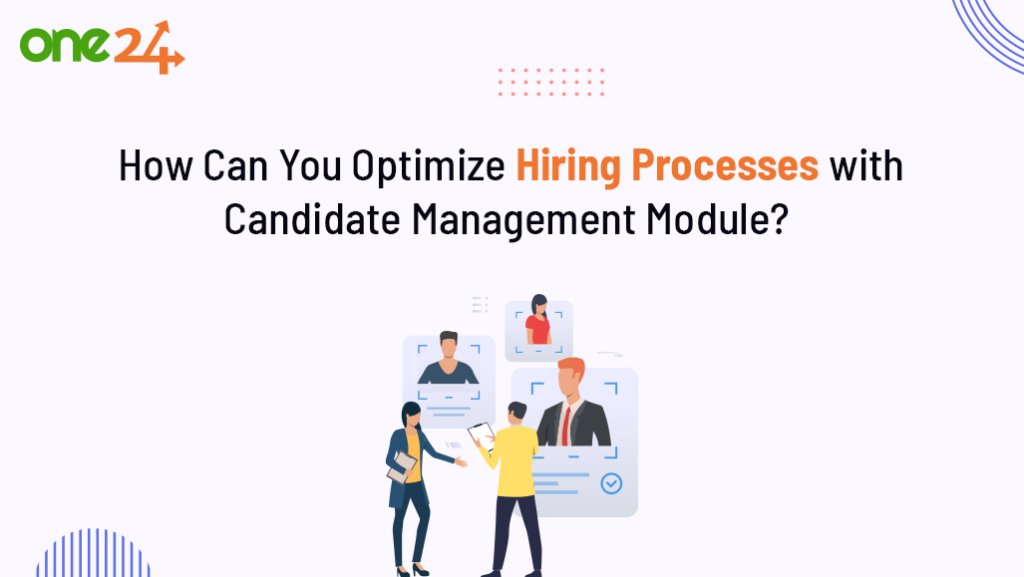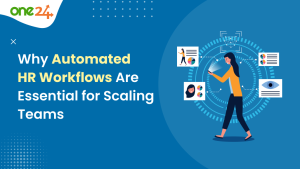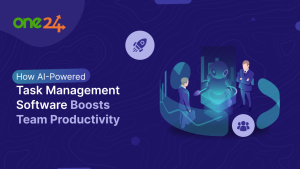In the competitive employment market establishments are consistently exploring methods to simplify and enhance their recruitment procedures. The use of candidate management modules in organizational management systems is one of the popular and effective tactics. These modules provide a whole range of features and capabilities aimed at increasing candidate satisfaction, streamlining the hiring process, and eventually bringing in top talent for the company.
Candidate Management Modules’ Function
A key component in the transformation of old hiring procedures into cutting-edge, technologically advanced systems is candidate management modules. They act as centralized platforms that hiring managers and recruiters may use to easily handle every facet of the hiring process. These modules offer end-to-end support for creating job requisitions as well as sourcing, screening, interviewing, and onboarding candidates.

How to Optimize Hiring Processes Using Candidate Management Modules?
1. Simplified Workflow
The purpose of this module is to streamline hiring procedures by standardizing the process and automating tedious work. Here’s how they make the workflow more efficient:
- Resume Screening: HR can add relevant information from resumes, which then compare qualifications to job requirements and rate candidates according to predetermined standards. Recruiters save time and effort due to the first screening process being accelerated.
- Interview Scheduling: HR can schedule interviews based on available times thanks to integrated scheduling elements that synchronize with recruiters’ calendars. Automated reminders simplify logistics and lower the number of no-shows.
- Candidate Communications: Message templates make communications more efficient. At various points during the hiring process, recruiters can send prospects individualized emails and updates to keep them informed and involved.
- Task Automation: Recruiters may concentrate on making strategic decisions and developing relationships by automating repetitive processes like updating statuses, asking interviewers for feedback, and sending follow-up emails.
2. Improved Candidate Experience
Improving the applicant’s experience is essential to drawing in and keeping top talent. Organizations can give candidate satisfaction first priority by using this module.
- Timely Feedback: Less uncertainty and anxiety are experienced when there are automated notifications and status updates regarding the applications.
- Personalized Communications: Using templates and procedures, recruiters may send communications that are specifically customized, showing that they genuinely are interested in their candidates.
- Transparent Updates: To build trust and preserve a positive employer brand, real-time updates on the status of applications are given along with helpful criticism.
3. Centralized Database
This module offers several advantages as a centralized store of data, including:
- Data Integrity: The danger of data loss or duplication is reduced because all information, including resumes, interview notes, and assessment results, is safely kept in one place.
- Simple Access: Recruiters and hiring managers may quickly make the right choice and collaborate by having instant access to profiles from any location.
- Collaboration: Throughout the hiring process, uniformity and alignment are ensured by the ability of many team members to see and edit records.
4. Improved Cooperation
These modules encourage cooperation between parties involved in recruitment:
- Shared Candidate Profiles: To promote openness and well-informed decision-making, hiring managers and recruiters can exchange profiles, assessments, and comments within the system.
- Feedback Exchange: Through the platform, recruiters may immediately request feedback from interviewers and team members, facilitating collaborative applicant evaluation.
- Collaborative Decision-Making: By comparing evaluations, debating suitability, and coming to a final say on the next course of action, stakeholders can work together to achieve alignment.

5. Analytics and Reporting
Recruiters are empowered to optimize recruitment methods and outcomes by data-driven insights:
- Performance Metrics: To pinpoint bottlenecks and potential improvement areas, recruiters should monitor key performance indicators (KPIs) like time-to-fill, applicant-to-hire ratio, and source effectiveness.
- Quality Assessment: Analytics tools examine indicators related to quality, such as interview results and retention rates, to help hiring procedures and selection criteria be continuously improved.
- Trend Analysis: Reporting features draw attention to hiring trends and patterns, which helps with strategic workforce planning and proactive decision-making.
Organizations may enhance their hiring procedures, increase productivity, and provide a better applicant experience by utilizing the comprehensive features of these modules. This will help them draw in and keep top talent for long-term business success.
Wrapping Up
In the thriving job market, this module of One24 provides a revolutionary way to optimize hiring procedures. Personalized interaction, automation, and strong data analytics can help firms attract and retain top talent while increasing recruitment efficiency and improving the candidate’s experience. Having a candidate management module is a strategic move that promotes organizational performance and competition in talent acquisition, not just an upgrade to technology.
Clear Your Candidate Management Queries
1. What is a candidate management module?
A software tool linked to an organizational management system made to improve and expedite the hiring process. In addition to centralizing data and automating processes like scheduling interviews and reviewing resumes, it also makes it easier for hiring stakeholders to collaborate and offers analytics for data-driven decision-making.
2. How can hiring processes be made more efficient by using a candidate management module?
Recruiting operations are streamlined by applicant management modules, which automate monotonous tasks like scheduling interviews, evaluating resumes, and communicating. This automation expedites the hiring process, increases overall efficiency, and frees recruiters to concentrate on making strategic moves.
3. How is the candidate’s experience enhanced by this module?
It enhances the hiring process by offering transparent updates, individualized communications, and prompt feedback to candidates. They are kept informed about the progress of their applications through automated notifications, which eliminates doubt and promotes a favorable perception of the company.
4. What advantages may a centralized candidate database offer?
Employing a centralized applicant database guarantees data accuracy, accessibility, and teamwork among hiring personnel. To reduce data loss and duplication, all information—including resumes, interview notes, and assessment results—is safely kept in one place.
5. How does a candidate management module facilitate collaboration among recruitment managers?
By enabling recruiters, hiring managers, and other stakeholders to share applicant profiles, exchange feedback, and collaborate on well-informed choices, this module promotes collaboration. Within the platform, stakeholders can compare assessments, discuss suitability, and decide on the next steps as a group.
6. What reporting, and analytics tools are included in the candidate management modules?
Recruiters can boost their recruitment efforts by using the extensive analytics and reporting capabilities provided by these modules. Important indicators that recruiters should monitor include candidate quality, source efficacy, applicant-to-hire ratio, and time-to-fill. These insights facilitate strategic selection and ongoing hiring process development.
7. How can companies attract top talent with the help of a candidate management module?
Organizations gain multiple benefits like increased recruitment effectiveness, enhanced applicant experience, and capacity for data-driven judgment from this module. These elements support a strong employer brand, which draws top talent looking for efficient and clear hiring procedures.






